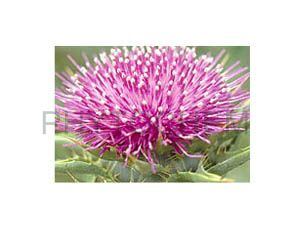In a nutshell, I believe the old strategy of spot market purchasing isn’t effective when purchasing certain botanical extracts, and marketers and contract manufacturers should change their strategies accordingly.
Many customers still haven’t changed their buying patterns.

Why? Let’s call it the rhythm of the harvest.
When I began in the industry four years ago, there was often more supply than demand for many botanicals, and by buying on the spot market, purchasers would get the lowest prices.
But times have changed, and today, demand has begun to equal or outstrip supply for many botanicals.
Indeed, while every raw material must be treated individually, one thing that is very predictable with botanicals that are harvested once a year is that immediately after the harvest, price bottom out. And then, throughout the year, depending on supply and demand, prices will stabilize or rise.
So locking in supplies at harvest is better than buying on the spot market later in the year
However, surprising numbers of buyers are still placing blanket orders once at the end of the year or on a just-in-time basis, although they could get a better price by buying or committing to certain products right after the harvest.
At Phytochem for example, while harvest time blanket orders have been trending upward, many customers still haven’t changed their buying patterns.
Changing market dynamics
So why are they still following an obsolete purchasing model?
Why do prices drop at harvest time?
It comes down to economics and human motivation. Many botanicals are grown on small farms. The farmers and aggregators aren't clueless; they have seen the cycle where prices are low at harvest time and increase as the year goes on.
But economic necessity dictates that they have to sell off a portion of the harvest at harvest time to cover new seed, fertilizer, living expenses and farm expenses. And this injects a surplus of product into the market.
Generally, the farms do not sell directly to the factory, they sell to a middleman. Let’s call him the aggregator. This aggregator gauges market conditions, and if he sees a very large harvest, he'll sell off everything and hold little.
But if the harvest is normal –low, he may buy as much as he can and then sit on the product, selling at higher prices as the year goes on.
Is it that market dynamics have changed in the past three years from being a buyer’s market (too much product) to a seller’s market (demand exceeds supply) and the mindset of the purchasing departments hasn’t caught up?
Or is it that purchasing agents now have so much on their plate, that they don’t have time to implement seasonal strategies to obtain lower costs in raw materials?
Or could it be that purchasing agents at contract manufacturers aren’t communicating/coordinating information with the sales department to relay important pricing information to their customers?
A more strategic approach to buying botanicals

One thing that is clear, however, is that when companies buy at the right time, there are big savings to be made.
Take the following examples:
Milk Thistle (harvest season: August to October). In October 2012, at the end of the harvest, prices in China bottomed out at $35/kilogram FOB (freight on board - ie. distributor pricing from China before shipping costs, duties etc). On February 6, 2013, the price was $42. That's a 20% increase.
Quercetin (harvest season: July-September). In September 2012, at the end of the harvest, Quercetin bottomed out at $80/kilogram FOB in China. On February 6, 2013, the price was $90. A 12.5% increase.
Turmeric (major harvest season: February-June). In June 2012, the price bottomed out at $80/kilogram and today it's $105, in part, due to a forecasted poor harvest for next season. That's a 23% increase.
It just seems a kind of basic sales 101 …
So what should be done?
For marketers it’s fairly easy to forecast demand and place a conservative blanket order based on the rhythm of the harvest to cover some or most of the anticipated demand for the coming year.
For contract manufacturers forecasting is more difficult and it’s more understandable that they are buying on the spot market.
But a question is raised in my mind. Is the purchasing department coordinating pricing information with the sales department so that the latter can utilize this knowledge to increase long term projects?
It just seems a kind of basic sales 101 that if a salesperson for a contract manufacturer made it clear to his/her customer/marketer that he/she could help the marketer generate a higher profit margin on certain botanical extracts by contracting the manufacturing for three months to a year, the customer would say, why not?
The contract manufacturers benefit because they lock the customer in for a year and the customers benefit because they receive the lowest price.
